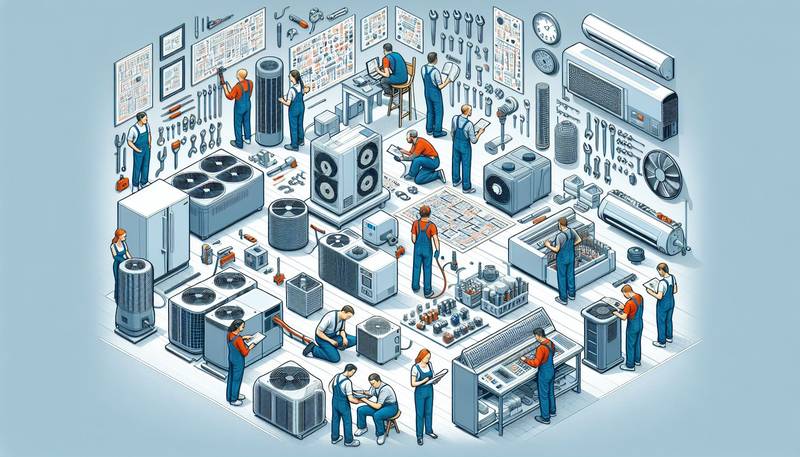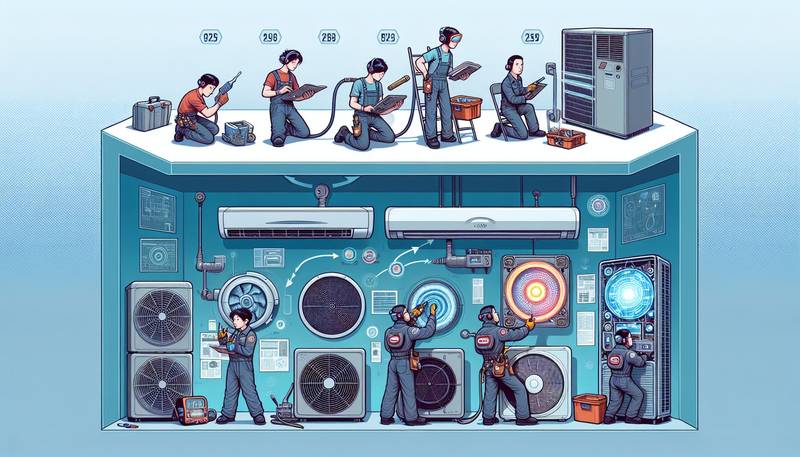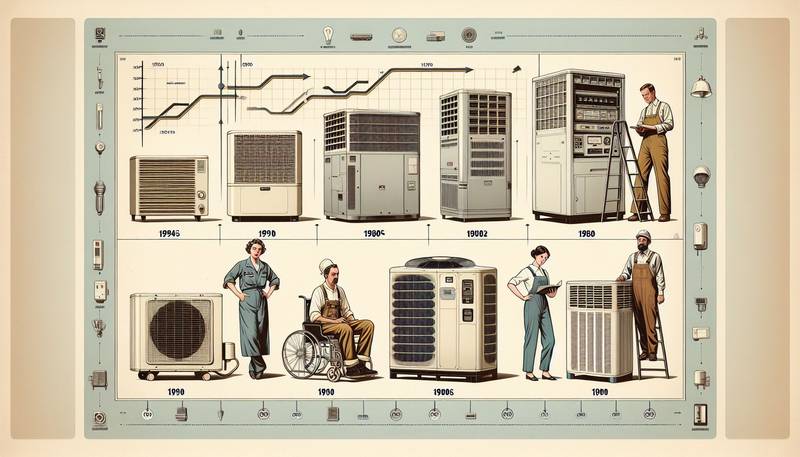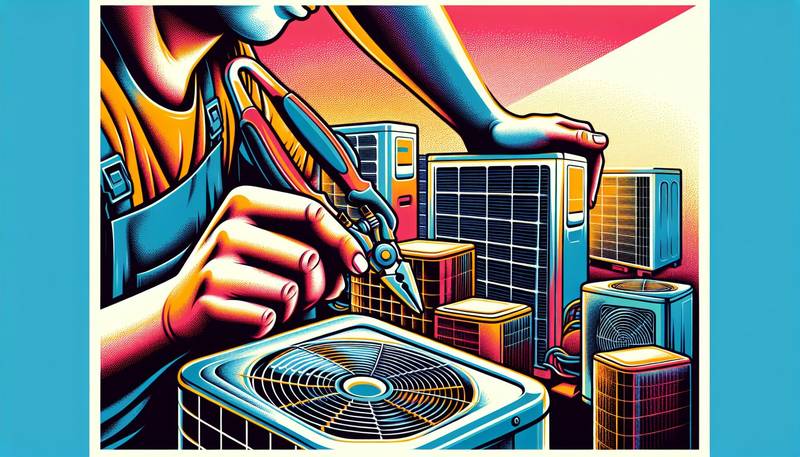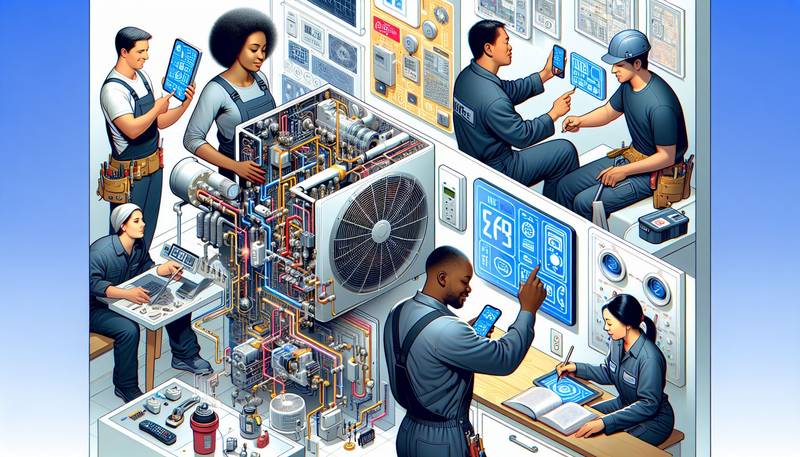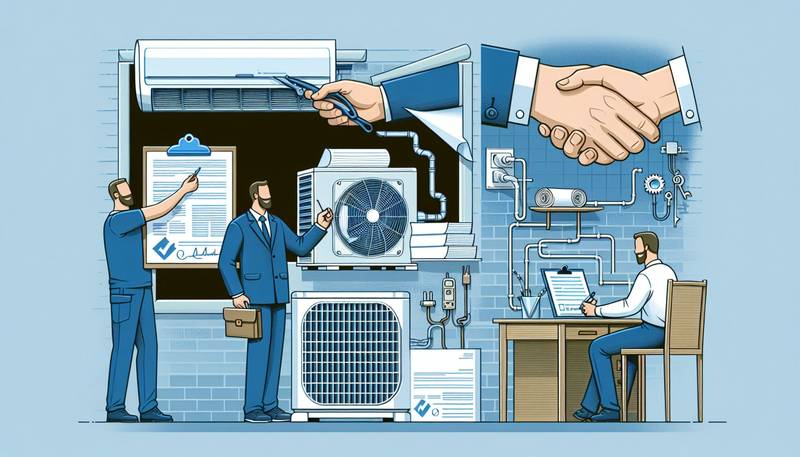The Essential Guide to Starting Your Career in Air Conditioning
Whether you are a recent high school graduate looking for a hands-on career or someone seeking a career change, this essential guide will provide you with the necessary steps to kickstart your journey in the air conditioning industry.
Education and Training
One of the first steps to starting a career in air conditioning is obtaining the necessary education and training. While a high school diploma is typically the minimum requirement, pursuing post-secondary education in HVAC (Heating, Ventilation, and Air Conditioning) technology can provide you with the foundational knowledge and skills needed to succeed in this field. Many technical schools, community colleges, and trade schools offer HVAC programs that cover topics such as refrigeration systems, electrical systems, and heating and cooling principles.
Apprenticeship Programs
In addition to formal education, gaining hands-on experience through an apprenticeship program is essential for aspiring air conditioning technicians. Apprenticeships typically last between three to five years and involve on-the-job training under the supervision of experienced technicians. This hands-on experience allows you to learn the practical skills and techniques necessary to install, repair, and maintain air conditioning systems. Many trade organizations and employers offer apprenticeship programs, providing you with a structured pathway to becoming a certified HVAC technician.
Certification and Licensing
Obtaining certification and licensing is another crucial step in starting your career in air conditioning. While requirements vary by state, most jurisdictions require HVAC technicians to hold a certification from an accredited organization such as the North American Technician Excellence (NATE) or the Environmental Protection Agency (EPA). Additionally, some states require HVAC technicians to obtain a license to work in the field. Licensing typically involves passing an exam that tests your knowledge of HVAC systems and regulations. By obtaining certification and licensing, you demonstrate to employers and customers that you have the expertise to perform quality work in the air conditioning industry.
Specialization
As you progress in your career in air conditioning, consider specializing in a specific area of HVAC technology to enhance your skills and marketability. Specializations such as commercial refrigeration, solar energy systems, or green technologies can set you apart from other technicians and open up new opportunities for career advancement. By staying informed about the latest trends and technologies in the air conditioning industry, you can position yourself as a knowledgeable and in-demand HVAC specialist.
Networking and Professional Development
Networking and professional development are essential components of a successful career in air conditioning. Joining professional organizations such as the Air Conditioning Contractors of America (ACCA) or the Refrigeration Service Engineers Society (RSES) can provide you with access to valuable resources, training opportunities, and industry connections. Attending industry events, workshops, and trade shows can also help you stay current on industry trends and build relationships with other HVAC professionals. By actively networking and investing in your professional development, you can enhance your credibility and expand your career opportunities in the air conditioning industry.
Conclusion
Starting a career in air conditioning can be a fulfilling and lucrative choice for individuals with a passion for hands-on work and problem-solving. By obtaining the necessary education, training, certification, and licensing, as well as pursuing specialization and networking opportunities, you can set yourself up for success as an HVAC technician. Whether you are just beginning your career or looking to advance to the next level, following this essential guide will help you navigate the path to a rewarding and prosperous career in the air conditioning industry.

